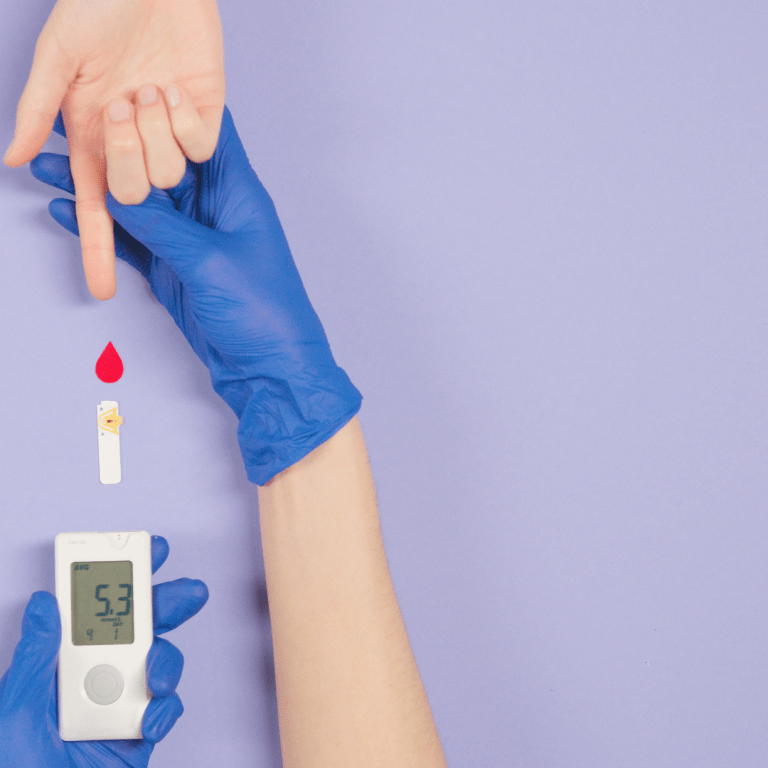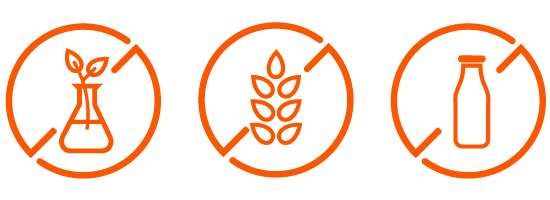
Introduction
The increasing prevalence of diabetes worldwide:
Diabetes has become a global health concern, with a significant rise in its prevalence over the years. According to the World Health Organization, more than 422 million people worldwide live with diabetes, and this number is expected to rise even further. With such alarming statistics, it is crucial to explore innovative approaches to diabetes management to improve the quality of life for those affected.
The need for innovative approaches to diabetes management:
Traditional diabetes management strategies often revolve around medication, lifestyle changes, and insulin therapy. While these approaches are effective to a certain extent, there is a growing need for innovative solutions that can enhance blood sugar control and overall well-being in individuals with diabetes. One such solution that holds promise is molecular hydrogen therapy.
Introduction to molecular hydrogen and its potential benefits:
Molecular hydrogen (H2) is the smallest and most abundant molecule in the universe. It possesses unique properties that make it a potential therapeutic agent for various health conditions, including diabetes. Molecular hydrogen has been extensively studied for its antioxidant, anti-inflammatory, and cell-signaling properties. These properties make it a fascinating avenue to explore for improving diabetes management.
Understanding Diabetes
Differentiating between type 1 and type 2 diabetes:
Diabetes is a metabolic disorder characterized by elevated blood sugar levels. It is important to distinguish between type 1 and type 2 diabetes. Type 1 diabetes is an autoimmune condition in which the body’s immune system mistakenly attacks and destroys insulin-producing cells in the pancreas. Type 2 diabetes, on the other hand, is primarily caused by insulin resistance, where the body’s cells become less responsive to insulin, leading to elevated blood sugar levels.
Explaining the role of insulin in blood sugar control:
Insulin is a hormone produced by the pancreas that plays a crucial role in regulating blood sugar levels. It allows cells to take in glucose from the bloodstream and use it as a source of energy. In individuals with diabetes, there is either a lack of insulin production (type 1 diabetes) or an inability of the body’s cells to effectively use insulin (type 2 diabetes). This disruption in insulin function results in impaired blood sugar control.
Current challenges in diabetes management:
Despite advances in diabetes management, several challenges persist. These include the need for better glycemic control, prevention of long-term complications, and addressing the underlying causes of insulin resistance. This is where molecular hydrogen therapy comes into the picture, offering a potentially groundbreaking approach to managing diabetes more effectively.
Exploring Molecular Hydrogen
What is molecular hydrogen?
Molecular hydrogen, or H2, is a gas consisting of two hydrogen atoms. It is a colorless, odorless, and tasteless substance. While hydrogen gas has been used for various industrial applications, recent research has unveiled its potential therapeutic effects on human health.
How does molecular hydrogen work in the body?
Molecular hydrogen acts as a selective antioxidant, meaning it targets harmful free radicals while leaving beneficial molecules untouched. It penetrates cell membranes and reaches the mitochondria, where it helps reduce oxidative stress and modulate cellular processes. Additionally, molecular hydrogen exhibits anti-inflammatory effects and can influence cell signaling pathways, contributing to its potential health benefits.
Potential benefits of molecular hydrogen in diabetes management:
Research suggests that molecular hydrogen may have several benefits for individuals with diabetes. It has been shown to improve insulin sensitivity, reduce blood sugar levels, and decrease markers of inflammation and oxidative stress. These effects make it a compelling candidate for enhancing blood sugar control and mitigating diabetes-related complications.
The Science Behind Molecular Hydrogen and Blood Sugar Control
Research studies on the effects of molecular hydrogen on blood sugar levels:
Several studies have explored the effects of molecular hydrogen on blood sugar levels in both animal models and human subjects. These studies have demonstrated promising results, with molecular hydrogen showing the potential to lower fasting blood glucose levels and improve glucose tolerance. The precise mechanisms underlying these effects are still being investigated but likely involve the modulation of insulin signaling pathways.
Mechanisms of action of molecular hydrogen in improving insulin sensitivity:
Insulin resistance is a hallmark of type 2 diabetes, and enhancing insulin sensitivity is a key therapeutic goal. Molecular hydrogen has shown the ability to enhance insulin sensitivity by reducing inflammation, oxidative stress, and improving mitochondrial function. These mechanisms contribute to better glucose utilization and improved blood sugar control.
Molecular hydrogen’s role in reducing oxidative stress and inflammation:
Oxidative stress and chronic inflammation play a significant role in the development and progression of diabetes. Molecular hydrogen’s unique antioxidant and anti-inflammatory properties help combat these processes. By neutralizing harmful free radicals and modulating inflammatory responses, molecular hydrogen can potentially alleviate the burden of oxidative stress and inflammation associated with diabetes.
H2 Life Extension Molecular Hydrogen Tablets: A New Approach to Diabetes Management
Introduction to H2 Life Extension Molecular Hydrogen Tablets:
H2 Life Extension Molecular Hydrogen Tablets offer a convenient and practical way to administer molecular hydrogen therapy. These tablets contain magnesium and other ingredients that, when combined with water, generate molecular hydrogen gas.
How H2 Life Extension Molecular Hydrogen Tablets are consumed:
Consuming H2 Life Extension Molecular Hydrogen Tablets is a simple process. The tablets are dissolved in water, allowing the release of molecular hydrogen gas. Individuals can then drink the hydrogen-rich water to obtain the potential benefits of molecular hydrogen therapy.
The advantages of using H2 Life Extension Molecular Hydrogen Tablets for diabetes management:
H2 Life Extension Molecular Hydrogen Tablets provide several advantages for diabetes management. They offer a portable and accessible form of molecular hydrogen therapy, allowing individuals to incorporate it into their daily routines easily. Furthermore, molecular hydrogen tablets are safe, non-toxic, and have minimal side effects, making them a viable option for long-term use.
Tips for Incorporating Molecular Hydrogen Tablets into Diabetes Management
Consulting with healthcare professionals before starting molecular hydrogen therapy:
Before integrating molecular hydrogen tablets into a diabetes management plan, it is crucial to consult with healthcare professionals. They can provide personalized guidance, assess any potential interactions with existing medications, and monitor the individual’s progress.
Proper dosage and administration of molecular hydrogen tablets:
Determining the appropriate dosage of molecular hydrogen tablets is important for optimal results. Healthcare professionals can help individuals identify the dosage that suits their specific needs based on factors such as age, weight, and overall health status. Adhering to the recommended dosage and administration guidelines is essential to maximize the benefits of molecular hydrogen therapy.
Monitoring blood sugar levels and making adjustments accordingly:
Regular monitoring of blood sugar levels remains a fundamental aspect of diabetes management. Incorporating molecular hydrogen tablets should not replace regular blood sugar monitoring. Individuals should continue to monitor their levels and work closely with healthcare professionals to make any necessary adjustments to their diabetes management plan.
Other Potential Health Benefits of Molecular Hydrogen
Molecular hydrogen’s effects on cardiovascular health:
In addition to its potential benefits for diabetes management, molecular hydrogen has shown promise in improving cardiovascular health. It may help reduce blood pressure, improve lipid profiles, and protect against heart-related complications. These effects suggest that molecular hydrogen could have a broader impact on overall cardiovascular well-being.
Molecular hydrogen’s impact on inflammation and oxidative stress in the body:
Chronic inflammation and oxidative stress contribute to the development of numerous diseases beyond diabetes. Molecular hydrogen’s ability to reduce inflammation and oxidative stress may have implications for various conditions, including neurodegenerative diseases, metabolic disorders, and autoimmune conditions.
Potential applications of molecular hydrogen in other chronic diseases:
While the focus of this blog post is on diabetes management, molecular hydrogen’s potential extends beyond this specific condition. Ongoing research explores its application in other chronic diseases, such as obesity, metabolic syndrome, and even cancer. Molecular hydrogen’s unique properties make it a fascinating subject for further investigation across various health conditions.
Conclusion
Recap of the benefits of molecular hydrogen tablets in diabetes management:
Molecular hydrogen tablets offer a novel and potentially game-changing approach to diabetes management. Research suggests that molecular hydrogen can improve blood sugar control, enhance insulin sensitivity, reduce oxidative stress and inflammation, and potentially alleviate diabetes-related complications.
The Potential of molecular hydrogen as a Game-changer in diabetes care:
While more research is needed to fully understand the mechanisms and long-term effects of molecular hydrogen therapy, the existing evidence is promising. Molecular hydrogen has the potential to revolutionize diabetes care by addressing underlying mechanisms, improving blood sugar control, and reducing the risk of complications.
Encouraging further research and exploration in the field:
Given the positive findings and promising anecdotal reports, further research is crucial to expand our understanding of molecular hydrogen’s therapeutic potential in diabetes management and other health conditions. Continued exploration and scientific investigation will help validate and refine the role of molecular hydrogen in the field of healthcare.
Frequently Asked Questions
How do molecular hydrogen tablets compare to traditional diabetes medications?
Molecular hydrogen tablets are not intended to replace traditional diabetes medications. They are designed to complement existing diabetes management strategies. It is important to consult with healthcare professionals to determine the most suitable treatment plan and any potential interactions between molecular hydrogen and other medications.
Are there any side effects of using molecular hydrogen tablets?
Molecular hydrogen therapy has been shown to be safe and well-tolerated, with minimal side effects reported. However, individual responses may vary. It is advisable to consult with healthcare professionals to assess any potential risks or interactions, especially for individuals with pre-existing medical conditions.
Can molecular hydrogen tablets replace insulin therapy?
Molecular hydrogen tablets are not a substitute for insulin therapy in individuals with type 1 or type 2 diabetes. Insulin remains a critical component of diabetes management. However, molecular hydrogen therapy may complement insulin therapy by improving insulin sensitivity and enhancing overall blood sugar control.
How long does it take to see results with molecular hydrogen tablets?
The timeline for experiencing results with molecular hydrogen tablets can vary among individuals. Some people may notice improvements in blood sugar control and overall well-being within a few weeks, while others may take longer. Consistency in usage, adherence to dosage guidelines, and personalized healthcare guidance are key factors in achieving optimal results.
Can molecular hydrogen tablets be used alongside other diabetes medications?
Molecular hydrogen tablets can generally be used alongside other diabetes medications. However, it is important to consult with healthcare professionals to ensure the compatibility of molecular hydrogen therapy with existing medications and personalized treatment plans.
By exploring the potential benefits of molecular hydrogen tablets in diabetes management, we open up exciting possibilities for improving blood sugar control and overall well-being. As research continues to unfold, molecular hydrogen has the potential to revolutionize the field of diabetes care and offer new hope to individuals living with this chronic condition.

© 2023 H2 Supplements. All Rights Reserved.